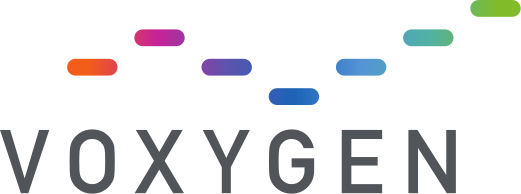Banking & Insurance
Applications

Discover the story of the creation of the SNCF's digital voice!
SNCF chose Voxygen to digitalise the voice that is known and heard throughout France.
See success storyNeed more information?
Contact usSolutions
.png?width=17&height=21&name=Vector%20(2).png)
Voxygen Server
Host your text-to-speech solution on your own infrastructure
.png?width=17&height=21&name=Vector%20(1).png)
Voxygen Cloud
Using speech synthesis in SaaS mode
.png?width=17&height=21&name=Vector%20(3).png)
Voxygen Studio
A user interface for creating audio messages easily
.png?width=17&height=21&name=Vector%20(4).png)
Voxygen Device
La synthèse vocale embarquée pour un usage déconnecté
.png?width=17&height=21&name=Vector%20(5).png)
Customised voice
A voice that reflects your brand identity

The creation of BNP Paribas' voice assistants
Voxygen has created two personalised brand voices for the virtual assistants Telmi (BNP Paribas) and HelloïZ (Hello Bank). BNP Paribas is revolutionising the user experience with its online banking and digital assistants!
Read success storyNeed more information?
Contact usExploiting voice data
The importance of respecting speakers' rights to their voice data


Customisable
Reliable
Scalable
Respect Speakers' Right
Synthetic voices have become increasingly prevalent in our daily lives through various applications such as voice assistants, audiobook narrations, and accessibility tools. As technology advances, there is growing concern regarding data privacy and ownership when it comes to speaker rights related to their voice recordings. It is crucial to understand the importance of protecting speakers' rights over their voice data to maintain trust and ethical standards within the industry.
📈 The Value of Voice Data
Voice data holds significant value in developing synthetic voices and improving speech recognition systems. Machine learning algorithms rely on vast datasets containing diverse accents, dialects, and tones to create lifelike digital voices. These realistic voices enhance user experiences across multiple platforms, making it essential for companies working with speech synthesis technologies to prioritize responsible practices concerning voice data collection and usage.
🔒Respecting Speakers' Rights
To ensure the protection of individual rights, several principles must be considered throughout the process of collecting, storing, and utilizing voice data.
✅ Consent : Obtaining clear, informed consent from individuals whose voices will be used is paramount. Individuals should be made aware of how their data will be utilized, including potential commercial uses, and they should retain the right to opt out at any point.
🔐Privacy : Ensuring confidentiality and security measures around stored voice data prevents unwanted intrusions and safeguards against misuse or theft of personal information. Encryption methods and secure storage solutions can provide adequate protection for sensitive records.
🔍Transparency : Companies must openly communicate their policies regarding voice data handling and disclose details surrounding its use and sharing practices. Maintaining transparency builds trust among users and fosters accountability within organizations.
🗣️Ownership : Recognizing the inherent ownership of voice data enables fair compensation for contributors and ensures appropriate credit allocation. Developing frameworks for attribution and remuneration acknowledges the human element behind every synthetic voice.
⚖️ Regulatory Frameworks
As regulatory bodies respond to emerging concerns surrounding artificial intelligence (AI), voice data, and privacy, guidelines governing these issues may emerge. Organizations like the European Union's General Data Protection Regulation (GDPR) offer some guidance on managing personal data, yet specific provisions addressing voice data remain limited. Establishing robust legal frameworks tailored to AI ethics and voice data management can further protect speaker rights and promote responsible development of synthetic voices.
🚀 Respecting the rights of text-to-speech speakers
Upholding the rights of speakers over their voice data contributes significantly to maintaining trust, promoting ethical conduct, and ensuring equitable treatment in the world of synthetic voices. By focusing on consent, privacy, transparency, and ownership, developers and businesses alike demonstrate commitment to preserving individual autonomy while harnessing technological advancements for improved user experiences. Adopting best practices now sets the stage for sustainable growth in the field of speech synthesis and cultivates positive relationships between innovators, consumers, and regulators alike.
Other articles
Read as well


Voxygen Studio NTTS
TTS Products
"The new Voxygen Studio interface makes it very easy to create text-to-speech messages using extremely realistic AI neural voices."
See more


Brand voice
Voice
"Reinforce your brand identity by creating your brand voice. Offer your customers a personalised text-to-speech solution that reflects your brand image."
See more


Customer relation
Voice
"TTS is becoming a key element in personalising voice interaction, and our speech synthesis is taking the customer experience to new heights."
See more

